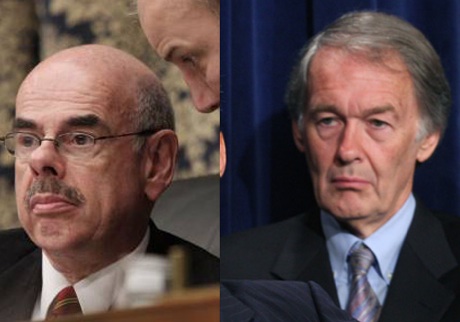For Australia, progress towards US climate legislation means that there is zero credibility left to the argument that Australia should not get ahead of other developed countries. Australia has been behind Europe on climate change policy for a number of years, and would be part of a small bunch of developed country followers once America takes the lead. And follow it invariably would, as it is simply unthinkable to hold out as a renegade rich polluter in the face of America setting to the task.
Equally, the ‘waiting for Copenhagen’ argument falls to pieces with any meaningful degree of progress on US climate policy.


On the target, because there is also funding for REDD, it could be that the actual emissions reductions are something like 10 per cent more than the 20 per cent reduction. My understanding is that the 20 per cent reduction is 7 per cent less than 1990 emissions.
Obama has also stated that if emissions reductions turn out to be cheap, then they could move to a more ambitious program. It would be useful to have a statement like this from our government. In an interview with the New York Times, Obama said:
One interesting issue is how compatible is the Australian legislation with the US legislation – how much potential is there to link the two? The key section is Section 728 on international emissions allowances. For the CPRS to qualify as a qualifying program, it would need to have a mandatory absolute cap, and have offset provisions that are at least as strict as those of the US. While the Australian scheme has a price ceiling (until something like 2016), Australia would not have a mandatory absolute cap, and most probably not qualify. This could easily be fixed by having a limit on the amount of permits that can be sold at the fixed ceiling price. Whether Australia’s offset provisions are strict enough is a more complex question, but this could also be an issue.
While it is important to have a more admirable and larger target for 2020, it is much more important to have the US to act and get it into an international agreement as the first step of global actions. In this sense, people may care little about the specific target of the US for 2020, given its long term target of 80% reduction of the 2005 level by 2050.
Without the US in action, there is little chance of success in any global actions, given that it is the world largest economy and its share of global emissions.
US actions are critical in persuading developing countries to join international actions to combat global warming, although how to involve them is important. There are complex issues of effectiveness, efficiency and equity involved. Differential timing and targets may be essential to the success of such efforts.
If the US doesn’t join the international community to reduce emissions, how can one expect that developing nations should take actions in doing that?
The US, together with Australia, has been a stumbling block to the Kyoto Protocol in the past. It has hampered international efforts and actions. So let’s hope that the Waxman-Markey bill will pass the US senate and becomes law. It will mark a new beginning in the global effort to tackle global warming.
Once a meaningful international agreement is reached, the signal it sends to governments and businesses is important. Innovations by the private sector will create new energy technologies, or reduce the costs of green energy technologies.